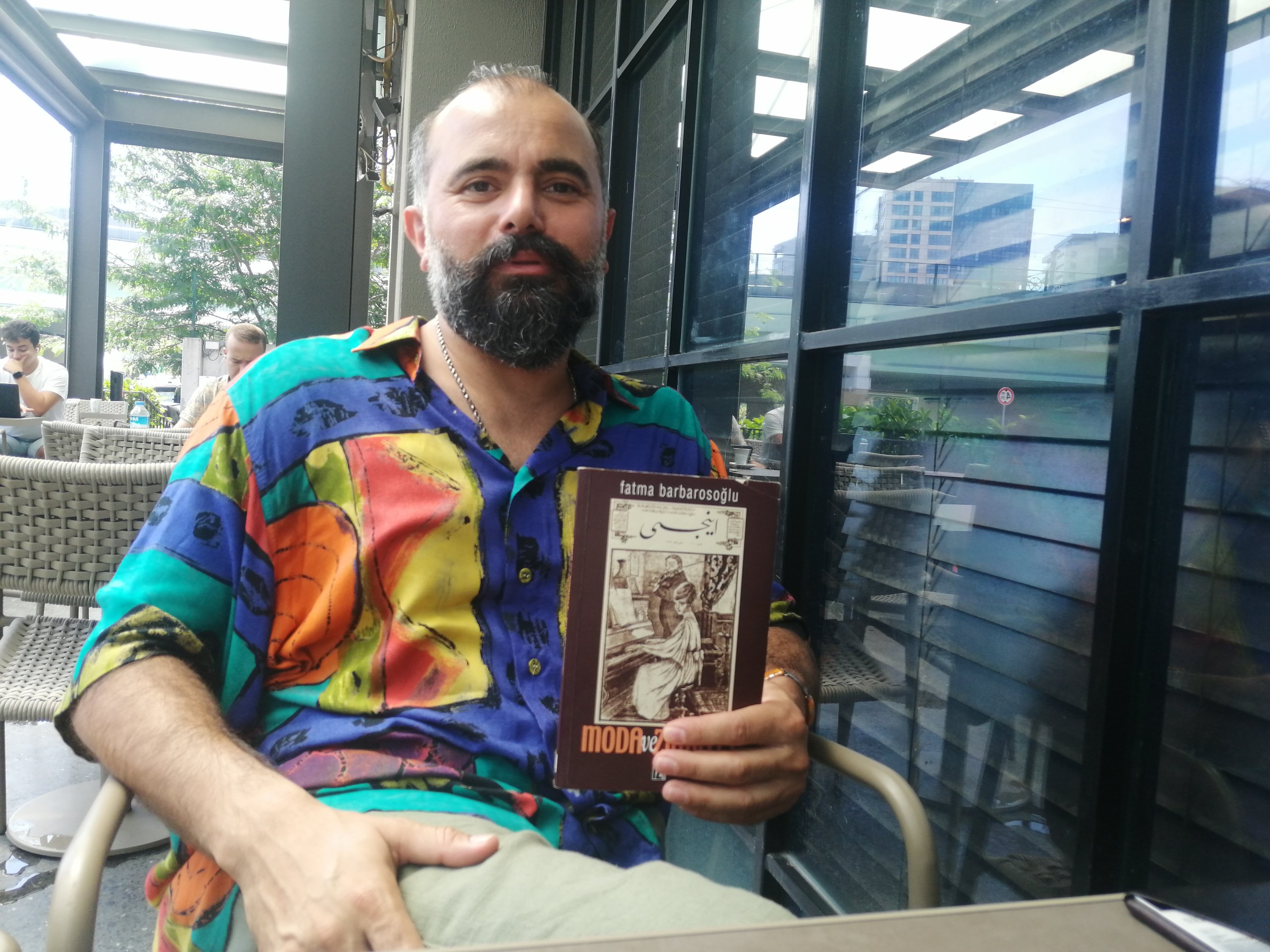Türkiye, like many other countries, is grappling with the environmental consequences arising from its fashion industry. The allure of fast fashion, driven by ever-changing trends, has led to a massive carbon footprint, pollution and resource depletion. A shocking statistic reveals that nearly 25% of the youth in Türkiye frequently renew their wardrobes, inspired by fast fashion outlets, contributing to harmful landfill waste and excessive carbon emissions.
However, a ray of hope shines through the rising popularity of thrift shopping, which not only addresses the textile waste crisis but also fosters recycling and nature preservation.
In response to this pressing environmental concern, Daily Sabah took the initiative to seek insights from various sources. The newspaper reached out to an antiquarian, a group of fashion-forward teens, and a psychologist to gain a deeper understanding of the issues at hand and explore potential solutions to tackle this growing environmental hazard.
"The secondhand market is flourishing, especially after the COVID-19 pandemic, as consumers gain a deeper appreciation for nature and the need for sustainable practices," said an Istanbul-based antiquarian.

Antiquarian Hamza Demirkapu, who advocates for the secondhand market, emphasizes its role in the circular economy. Unlike fast fashion, which produces lower-quality garments often discarded after a mere 10 wears, thrift shopping offers longer-lasting clothes that can be resold multiple times, creating less waste.
"The shift toward thrift shopping is not only motivated by environmental concerns but also by a growing awareness of the social and economic benefits. As more consumers in Türkiye realize the negative impact of fast fashion on the environment and labor, they are choosing secondhand apparel as a more sustainable and socially acceptable option," said Demirkapu.
During an interview with Meliha Abideen, a college-going teenager from Istanbul hailing from a middle-class family, she candidly revealed her approach to keeping up with fashion trends. She said, "I take up part-time jobs to afford the latest fashion pieces as I observe my peers flaunting remarkable brand-new season outfits." She admitted feeling an irresistible urge to work extra hours and purchase the exact articles to stay in line with current trends.
Psychologist professor Sana Riaz sheds light on the phenomenon of "FOMO" (fear of missing out) and its connection to the thrill of shopping for new trends. "The hits of dopamine and adrenaline create a reward-seeking loop that causes us to reach for our debit card over and over again. Thrift shopping, on the other hand, can break this cycle by providing fashion accessories that cater to the desire for individuality without having to spend much."
"In the past, wearing used clothes was seen as normal, but with the rise of industrialization and mass production, it became stigmatized. However, as times change, especially for students with limited budgets, buying secondhand clothes has become a practical and environmentally conscious choice," said Demirkapu.
Hamza's study highlights the alarming rate at which the fashion industry changes trends, resulting in a loss of valuable resources. "Modern clothing lacks the durability and quality found in older garments, which could last for a decade or more. This shift in production and consumer behavior has led to an abundance of textile waste, particularly affecting underdeveloped and Third World countries," said Demirkapu.
To combat this waste, he suggests thrift stores like Topkapi Bit Pazar, Ferikoy Bit Pazar, Bakirkoy, and popular e-commerce platforms like Letgo and Dolap in Istanbul, where people can find unique vintage pieces and contribute to a more sustainable future.
Inflation and the desire for forward-fashion have also played a significant role in the popularity of thrift shopping. As purchasing power diminishes, Türkiye's youth turns to thrift shopping to stay fashionable without overspending. Moreover, online marketplaces and social media apps have facilitated the trade of used clothes, catering to the growing demand for one-of-a-kind clothing.
Demirkapu highlighted an alarming concern related to the environmental impact of synthetic textiles, and remarked, "It cannot be underestimated, as these materials can take hundreds of years to decompose. The growing mountain of textile waste poses a serious threat to underdeveloped and Third World countries, affecting labor, exacerbating natural disasters, and impacting the economy."
The shift toward thrift shopping signals a growing awareness among Türkiye's youth of the need for more sustainable and environmentally responsible practices in the fashion industry. As the secondhand market gains momentum, it may eventually outpace fast fashion, offering a glimmer of hope for a more sustainable future. With conscious consumer choices and a will to embrace vintage fashion, individuals can contribute to a healthier planet and a brighter future for the world.
Thrift shopping trend to counterblow fast fashion in Türkiye | Daily Sabah - Daily Sabah
Read More
No comments:
Post a Comment